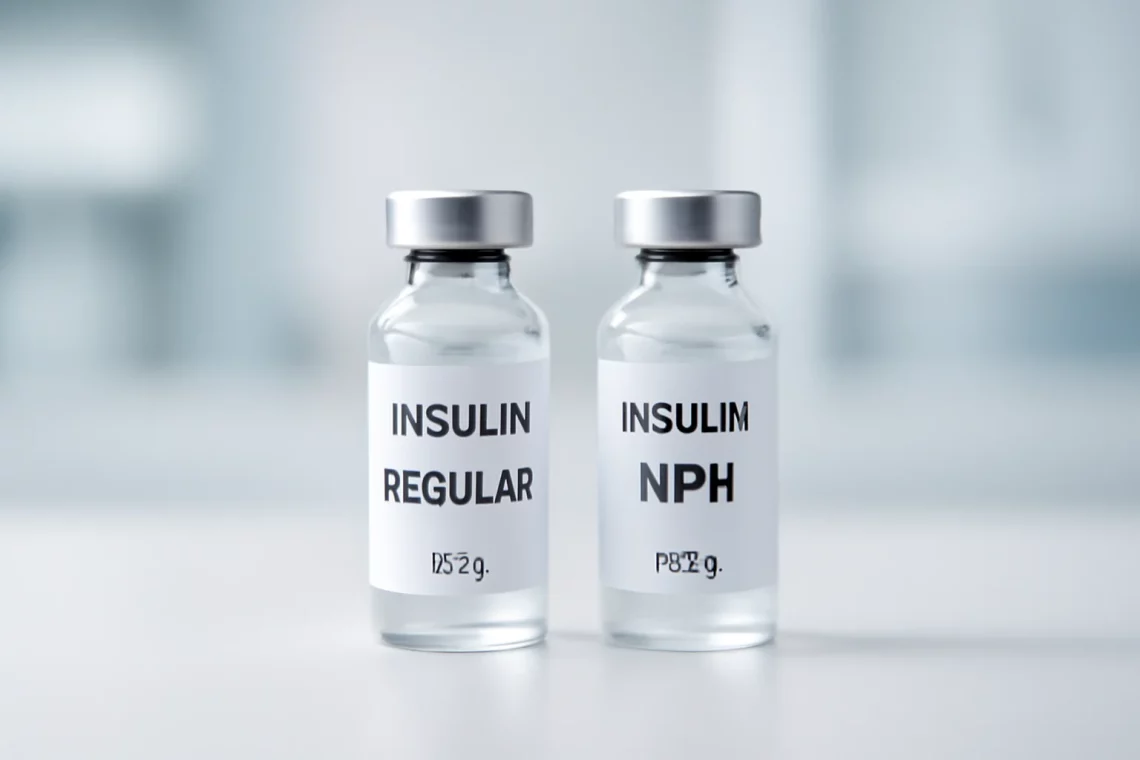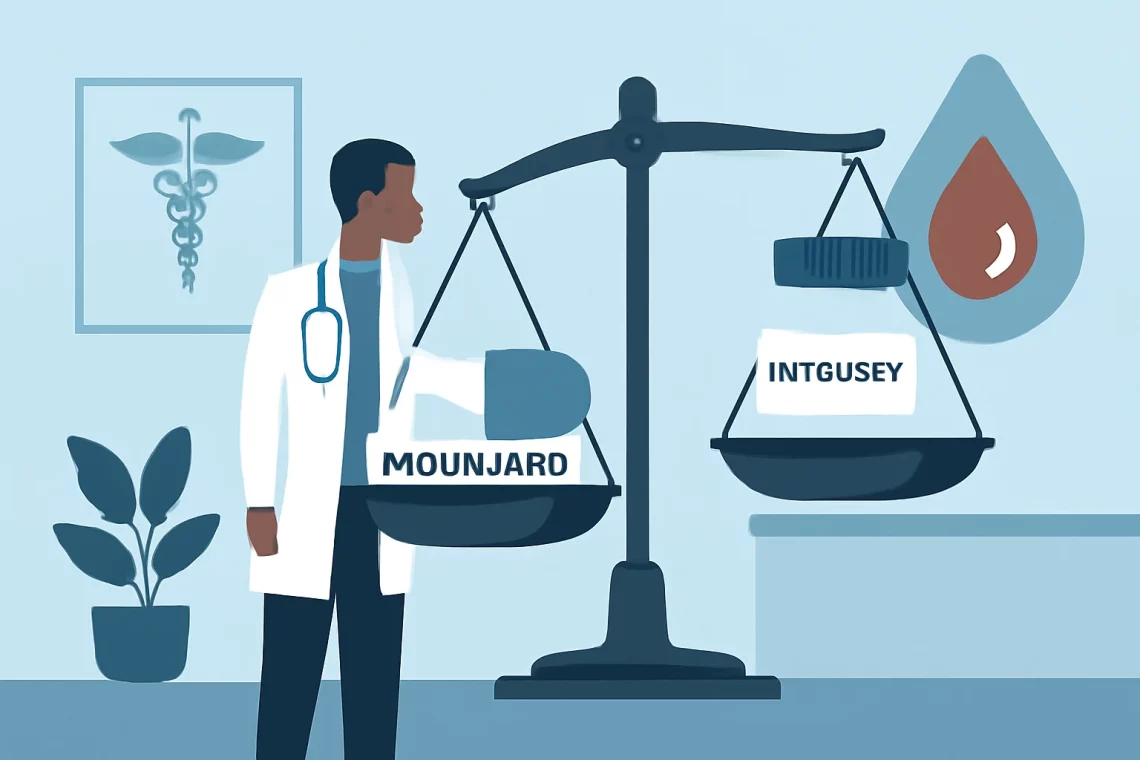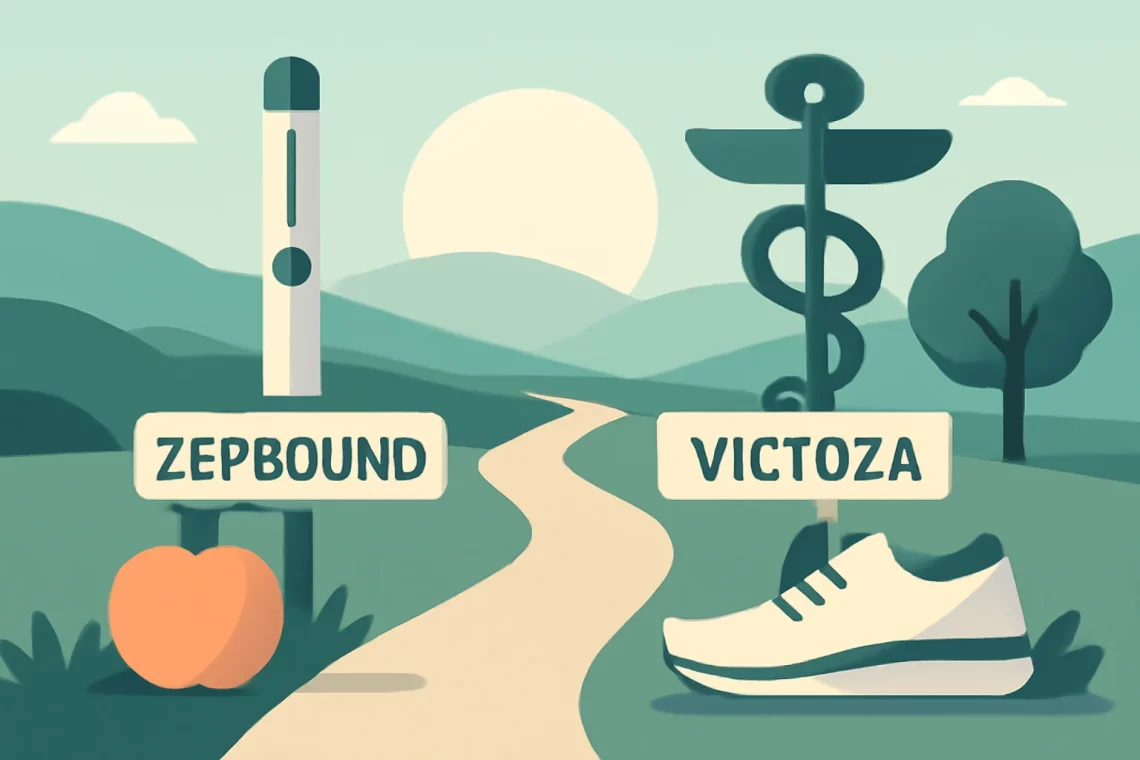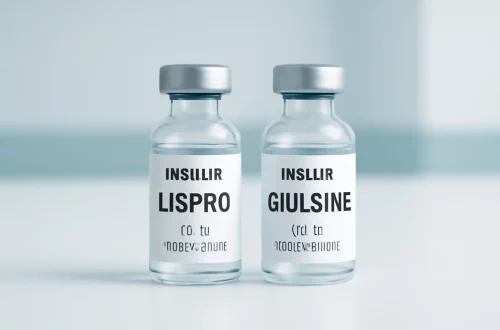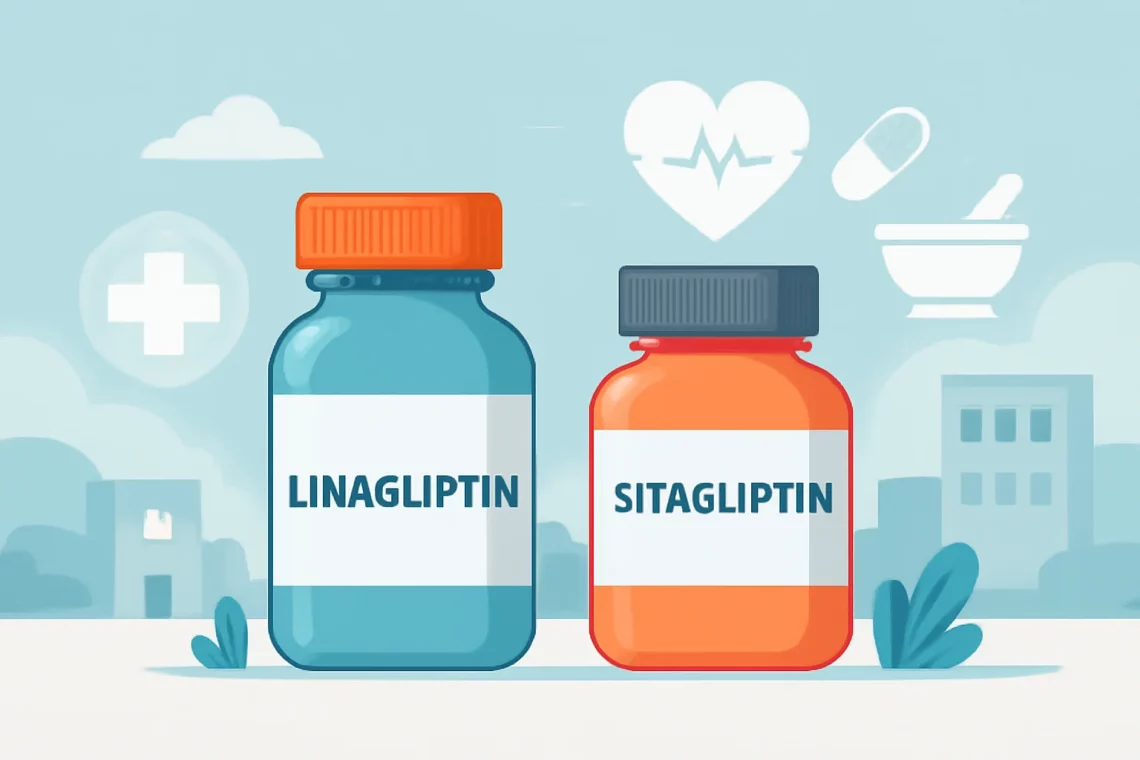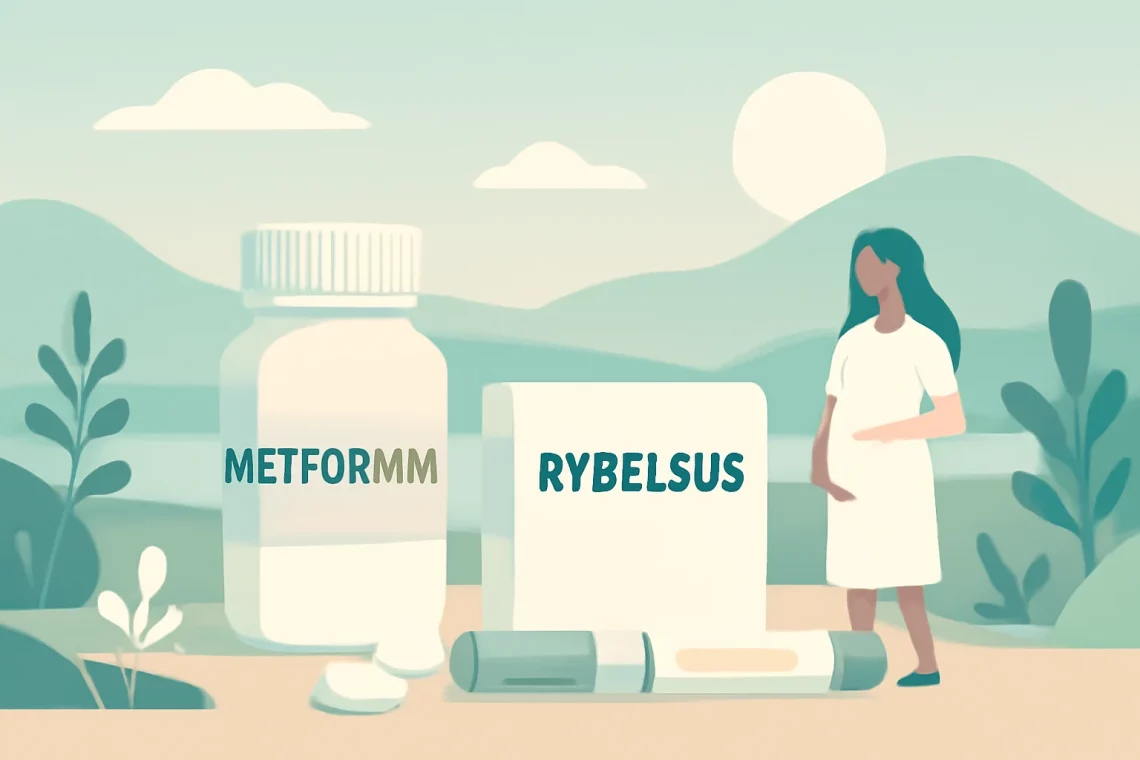-
Choosing Between Regular Insulin and NPH Insulin for Diabetes Management
Insulin therapy plays a crucial role in managing diabetes, a condition that affects millions worldwide. Among the various types of insulin available, Regular insulin and NPH (Neutral Protamine Hagedorn) insulin are two of the most commonly used. Understanding the differences between these two types of insulin can empower patients and caregivers to make informed decisions about diabetes management. Regular insulin, often referred to as short-acting insulin, is known for its quick onset of action. It’s typically used to control blood glucose levels around mealtimes, making it an essential component of many diabetes management plans. On the other hand, NPH insulin is an intermediate-acting insulin that provides a more prolonged effect,…
-
Mounjaro vs Metformin: Which Diabetes Treatment is Right for You?
Managing diabetes effectively is crucial for maintaining a good quality of life. With the rise of various treatment options, patients and healthcare providers are often faced with the task of selecting the most suitable medication. Two popular options include Mounjaro and Metformin, which serve distinct purposes in diabetes management. Mounjaro, a newer medication, has captured attention for its potential benefits, while Metformin has long been regarded as the first-line treatment for Type 2 diabetes. Understanding the mechanisms, benefits, and side effects of these medications can empower patients to make informed decisions. Each drug has its unique characteristics, and their effectiveness may vary depending on individual health conditions and lifestyle choices.…
-
Insulin Detemir vs Insulin Glargine: Which is Right for You?
Insulin therapy has become a cornerstone in the management of diabetes, providing patients with the means to control their blood glucose levels effectively. Among the various insulin formulations available, Insulin Detemir and Insulin Glargine are two popular long-acting insulins that play a crucial role in the treatment of diabetes. Both of these insulins are designed to mimic the body’s natural insulin release, allowing for better glycemic control and minimizing the risk of complications associated with diabetes. Understanding the differences and similarities between these two insulins can empower patients and healthcare providers alike to make informed decisions about diabetes management. With the increasing prevalence of diabetes worldwide, the choice of insulin…
-
Metformin vs Glipizide: Which is Better for Managing Diabetes?
Metformin and Glipizide are two widely used medications in the management of type 2 diabetes. As the prevalence of diabetes continues to rise globally, understanding the differences, benefits, and potential drawbacks of these medications is essential for patients, caregivers, and healthcare professionals alike. Both drugs function through distinct mechanisms to help control blood sugar levels, but their applications, efficacy, side effects, and patient experiences can vary significantly. Metformin, often viewed as a first-line treatment, works primarily by decreasing glucose production in the liver and increasing insulin sensitivity in muscle tissues. On the other hand, Glipizide belongs to a class of drugs known as sulfonylureas, which stimulate the pancreas to release…
-
Zepbound vs Victoza: Which Diabetes Treatment is Right for You?
In recent years, the landscape of diabetes management has evolved significantly, with numerous medications being introduced to help individuals achieve better control over their blood sugar levels. Among these, Zepbound and Victoza have emerged as popular options for those managing type 2 diabetes. Both medications work through distinct mechanisms and offer unique benefits, making them suitable for different patient needs. As the prevalence of diabetes continues to rise globally, understanding the differences and similarities between these two medications is crucial for patients and healthcare providers alike. Zepbound, a newer entrant in the diabetes medication market, has garnered attention for its innovative approach to glucose regulation. On the other hand, Victoza…
-
Ozempic vs Rybelsus: Which Diabetes Treatment is Right for You?
Ozempic and Rybelsus are two medications that have gained significant attention in recent years for their role in managing type 2 diabetes. Both of these drugs belong to a class of medications known as GLP-1 receptor agonists, which have been shown to help regulate blood sugar levels effectively. However, despite their similar mechanisms of action, there are distinct differences between the two that can influence a patient’s choice in treatment. As the prevalence of type 2 diabetes continues to rise globally, understanding the options available for managing this condition has never been more crucial. Both Ozempic and Rybelsus offer unique benefits and potential drawbacks, making it essential for patients and…
-
Mounjaro vs Bydureon: A Comprehensive Comparison of Diabetes Treatments
Mounjaro and Bydureon are two significant medications in the realm of diabetes management, particularly for individuals battling Type 2 diabetes. As the prevalence of this condition continues to rise, so does the need for effective treatments that not only help manage blood sugar levels but also cater to the overall well-being of patients. Both Mounjaro and Bydureon have emerged as popular options, each boasting unique mechanisms of action and benefits. Mounjaro, with its innovative approach, utilizes a dual-action formula that targets multiple pathways involved in glucose control. This offers patients a more comprehensive solution for managing their diabetes. On the other hand, Bydureon, a well-established medication, has been available for…
-
Zepbound vs Rybelsus: A Comprehensive Comparison of Diabetes Treatments
The rise of innovative medications has significantly transformed the landscape of chronic disease management, particularly in the realm of diabetes treatment. With the ongoing evolution of pharmacological options, patients and healthcare providers alike are faced with a plethora of choices, each promising unique benefits and mechanisms of action. Among these, Zepbound and Rybelsus have emerged as noteworthy contenders in the fight against type 2 diabetes. Both medications harness the power of GLP-1 receptor agonists, a class of drugs that mimics the activity of incretin hormones to promote insulin secretion and regulate blood sugar levels. As diabetes continues to be a global health challenge, understanding the nuances of these medications can…
-
Linagliptin vs Sitagliptin: Which Diabetes Medication is Right for You?
Managing diabetes is a complex challenge that requires a multifaceted approach, including lifestyle modifications and, often, medication. Among the various pharmaceuticals designed to help control blood sugar levels, Linagliptin and Sitagliptin have emerged as popular options. Both belong to a class of medications known as DPP-4 inhibitors, which work by enhancing the body’s natural ability to lower blood sugar. As diabetes continues to affect millions worldwide, understanding the differences, benefits, and drawbacks of these medications is crucial for individuals looking to manage their condition effectively. While both Linagliptin and Sitagliptin share similar mechanisms of action, they also have unique properties that may influence a patient’s choice between the two. Factors…
-
Metformin vs Rybelsus: Which Diabetes Treatment is Right for You?
Metformin and Rybelsus are two medications frequently discussed in the realm of diabetes management, each with its unique characteristics and benefits. Understanding the differences, benefits, and mechanisms of action of these drugs is crucial for patients, healthcare providers, and anyone interested in diabetes care. As diabetes continues to be a prevalent health concern worldwide, effective management strategies are essential for improving patients’ quality of life and preventing complications associated with the disease. Metformin has long been regarded as a first-line treatment for type 2 diabetes, with a well-established safety and efficacy profile. It primarily works by improving insulin sensitivity and decreasing liver glucose production, thereby helping to regulate blood sugar…
